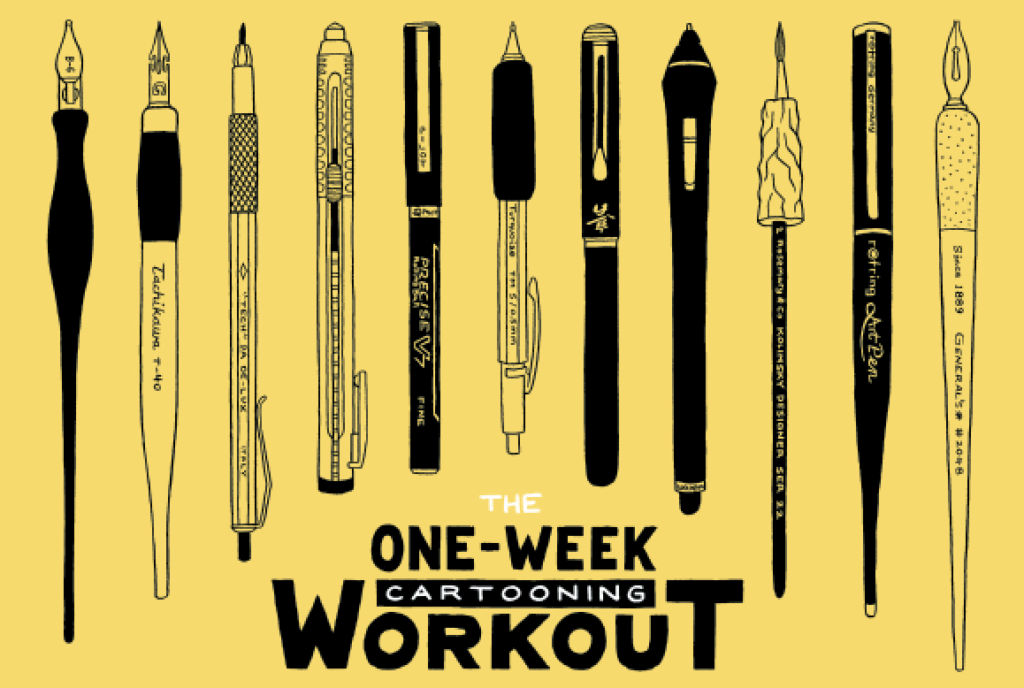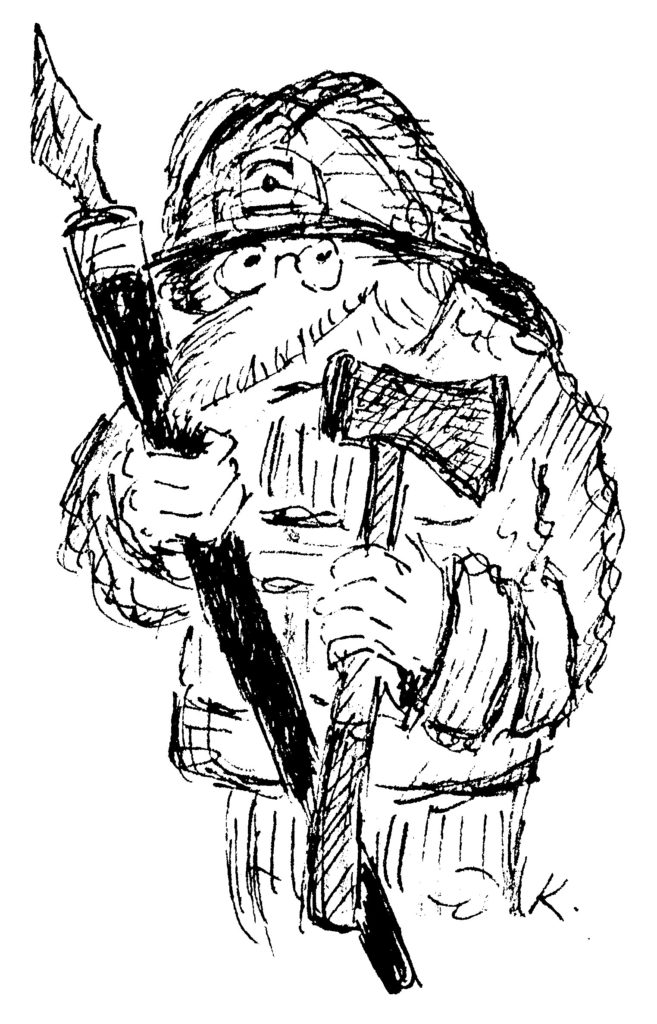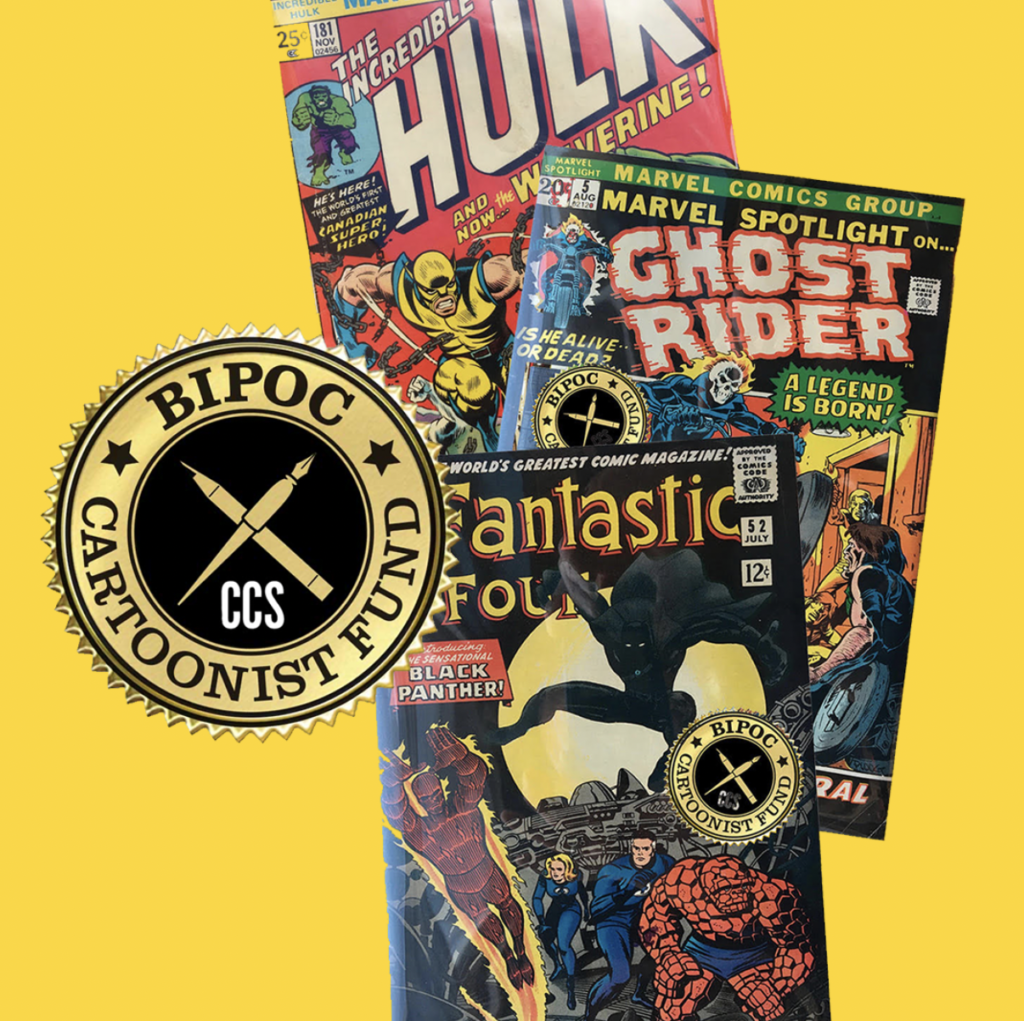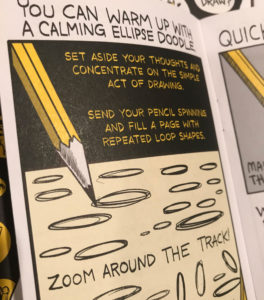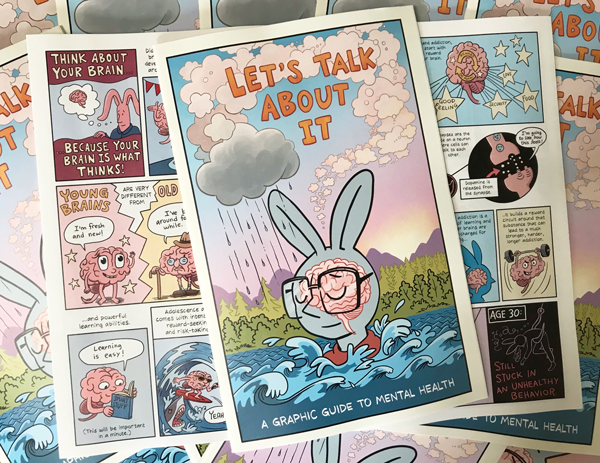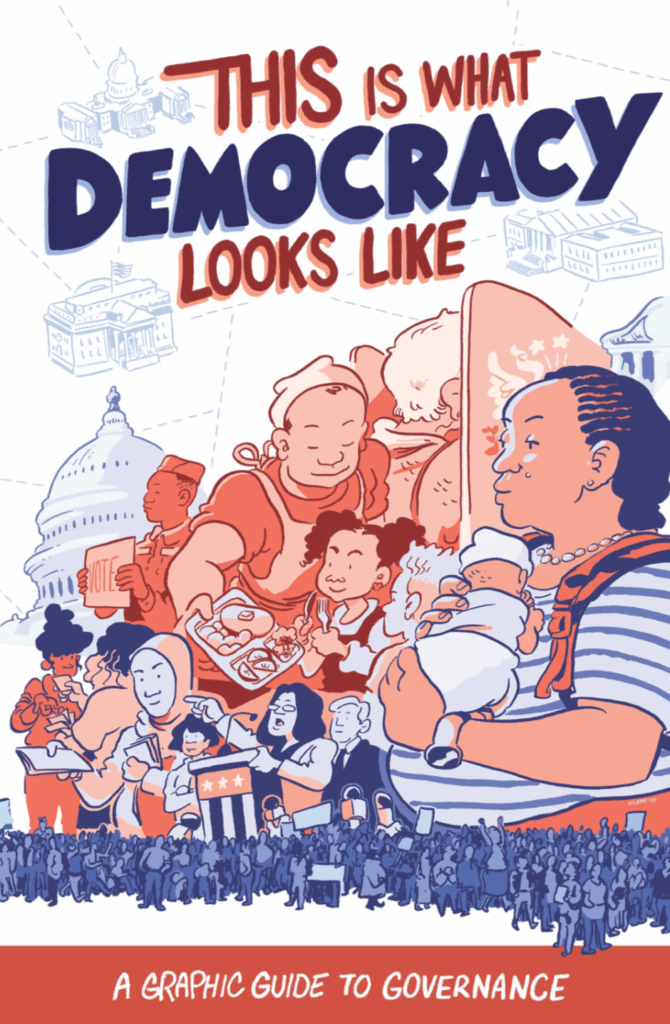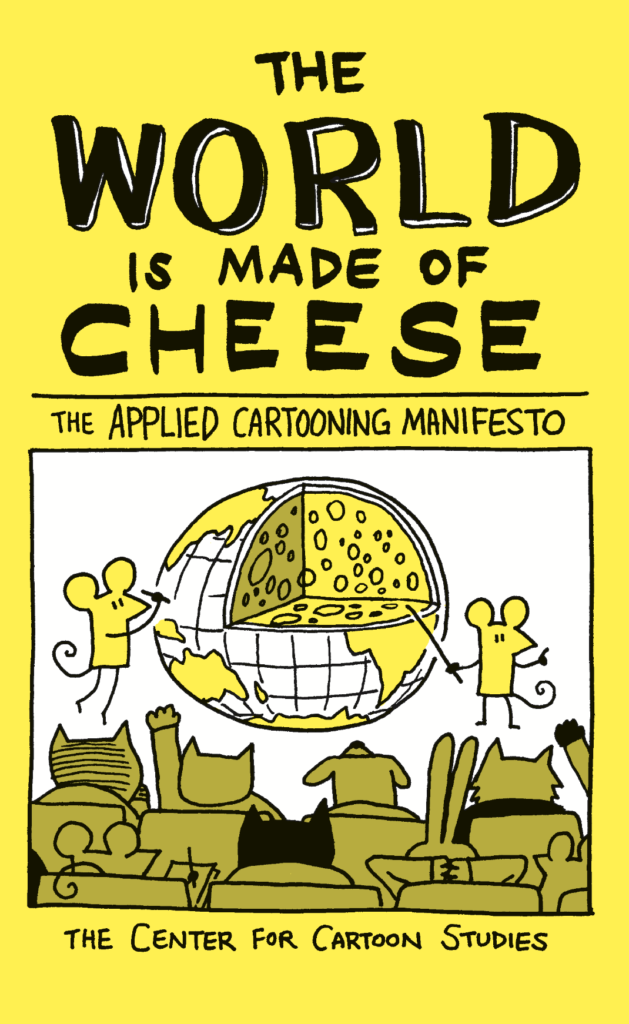November 14, 2018
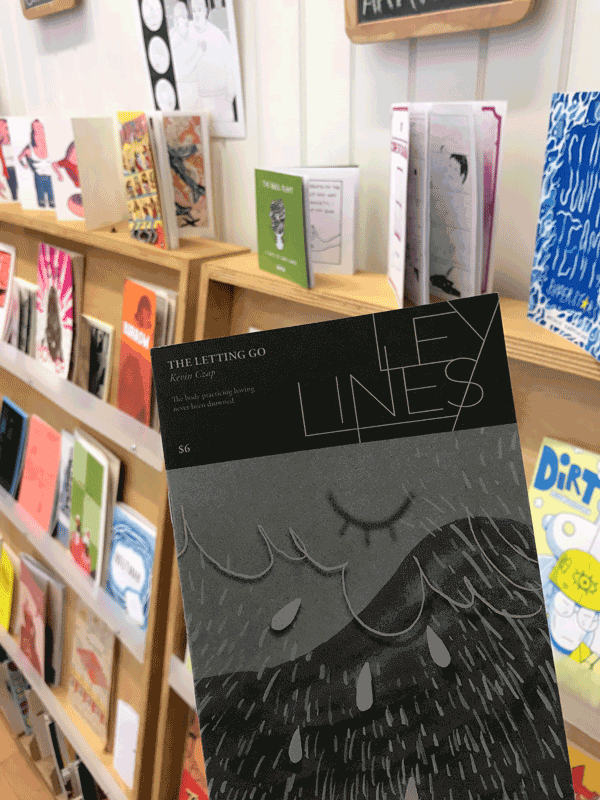
The Schulz Library has always had an impressive Zine Garden, what they call their collection of mini-comics. But they have recently begun to add the zines to their online database so that the massive collection is searchable. Dan Nott ′18, assistant librarian at the Schulz Library, talks about the collection, organizing and managing publications, and how mini-comics provide a unique insight into the the history of the community around them.
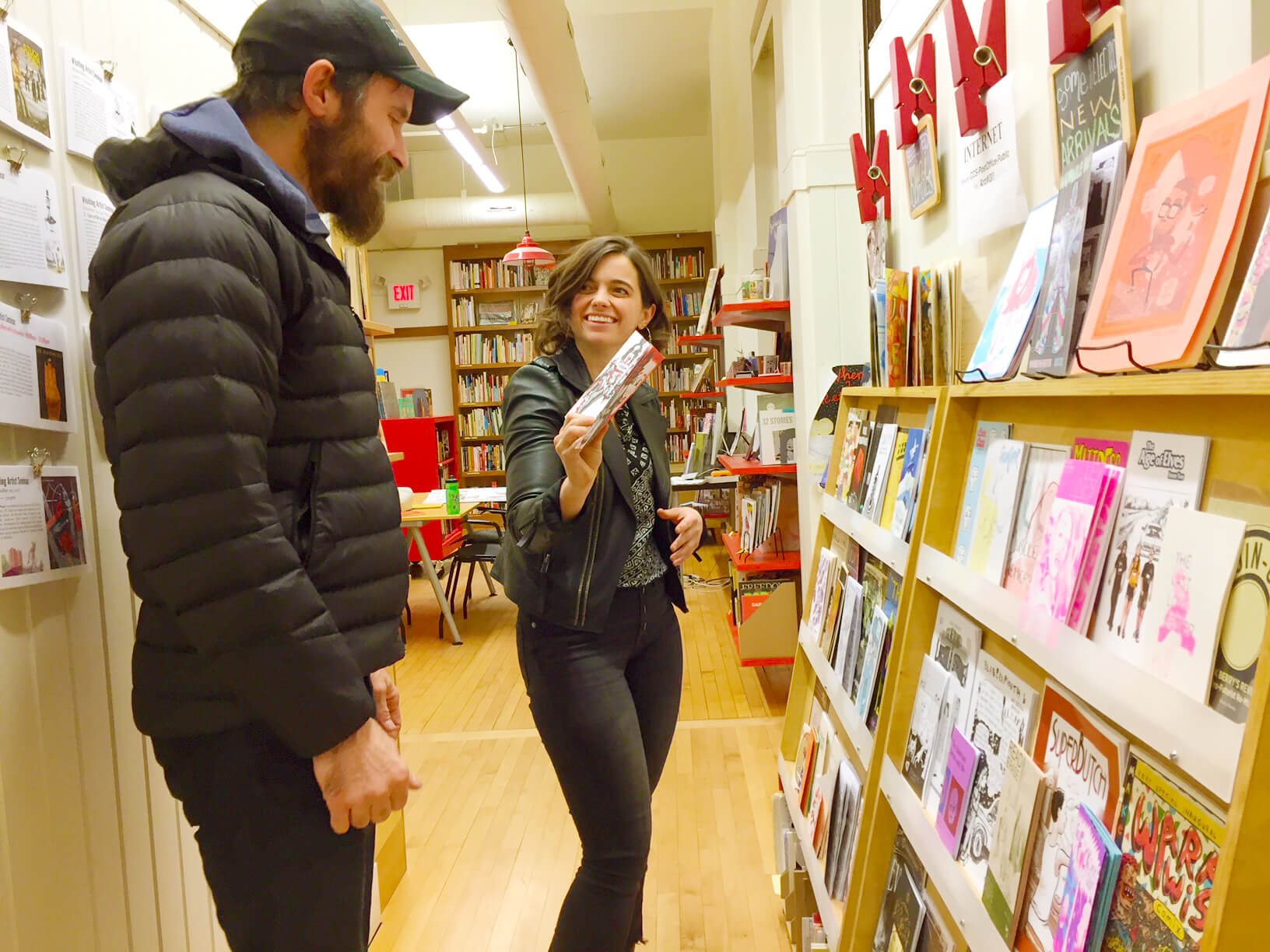
How large is the Mini-Comic/Zine collection currently? Where can it be found?
The collection is very extensive—so extensive, in fact, that we’re still figuring out exactly how many comics we have! Our estimates range from 3,000 to 5,000 items and includes everything from small-press floppies to self-published anthologies and mini-comics. The Mini-Comic Garden now has a significant presence in our library. We use 16 shelves to curate a selection of new arrivals (updated weekly), as well as highlights from the collection, and alphabetized boxes for storage. If you’re feeling adventurous, our offsite library contains thousands of yet-to-be-cataloged mini-comics that span the history of alternative comics.
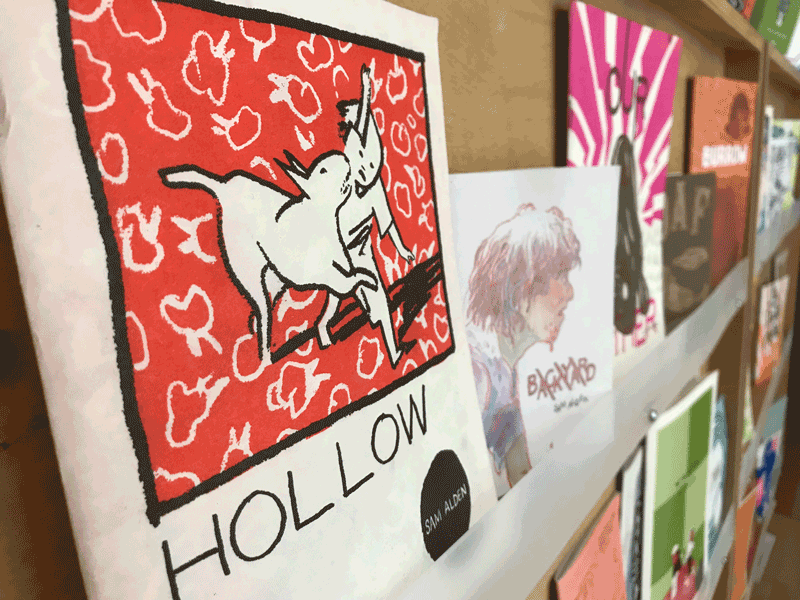
The librarians have recently been organizing this collection. How was that process?
It’s been an amazing challenge to work on with the other librarians! Mini-comics mostly don’t have spines and are difficult to organize and go through, so our model really relies on rotating out a curated selection of comics. Although we began revamping the mini-comic collection in earnest last summer, CCS had been working to scan the covers of items in the collection for years. And while it may seem tedious to be scanning and inputting cataloging data for thousands of mini comics, it’s actually been really educational—I feel like I’ve gained a pretty unique insight into the the history of mini-comics and the community around it.
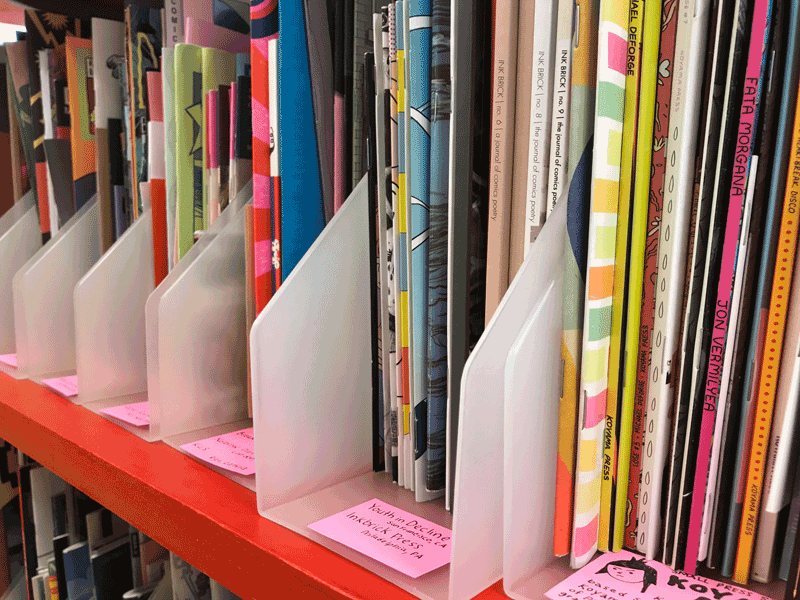
While organizing, what was the most interesting thing (or few things) that you found?
I’m most interested in the way mini-comics can show an artist’s progression, which is really something unique to the format. Cartoonists use minis to experiment and get their work out when they’re first starting. Unlike graphic novels which are relatively easy to purchase online or find at traditional libraries, most mini-comics are extremely rare— they are printed in small runs, are difficult to acquire, and are not a part of many collections. We have comics like Adrian Tomine’s original, self-published issues of Optic Nerve (1991) before it was picked up by D&Q, and early comics by cartoonists like Gary Panter, Ron Rege Jr., Gabrielle Bell, Eleanor Davis, and Michael DeForge. The library has almost the entire run of Oily Comics (run by Charles Forsman), which published over a hundred mini-comics by a lot of the most influential artists in contemporary comics. And while a lot of cartoonists may be ambivalent about early work being preserved, I think there’s a great benefit to being able to see this artistic progression, especially in an educational setting.
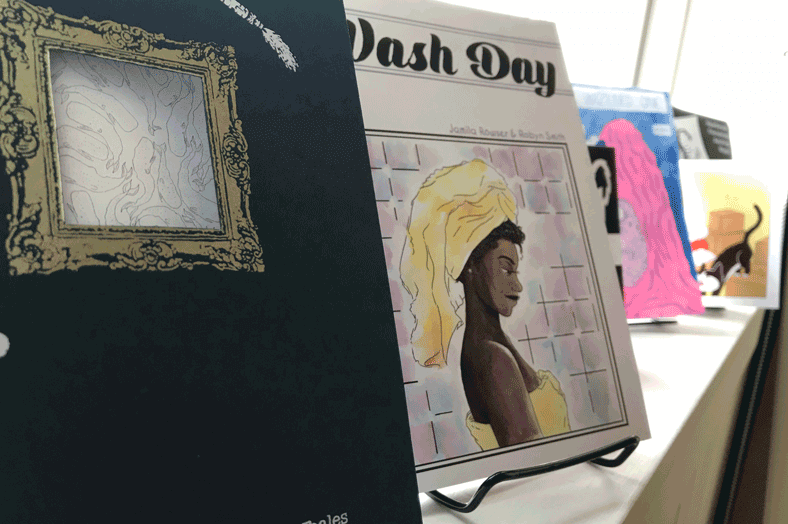
Any recommendations on where people can start their interaction with such a large collect?
We try to keep a wide range of comics on display so that there’s plenty to read, so you don’t have to dig for if you don’t want to. But I think digging is part of the fun with a collection like this. One way is to come in, take a box to a reading table and just go through it, looking for comics that catch your eye. Remotely, we have an online catalog that you can access using the Schulz Library website, where you can search for a favorite cartoonist and see what we have by them. Using an Advanced Search, you can query the database just for zines to narrow it down.
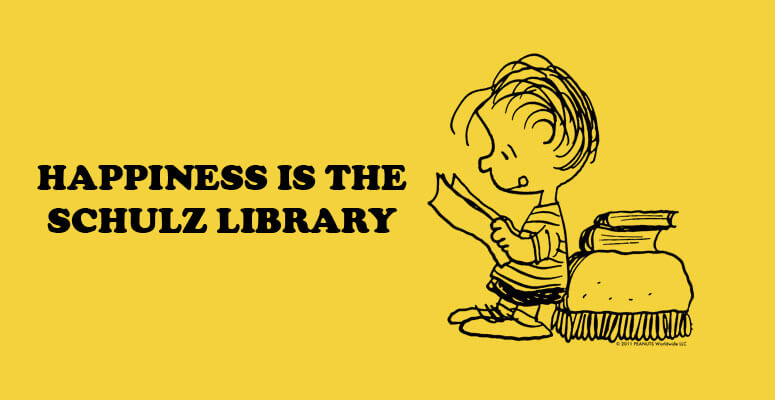
How can people be involved with this collection? Just mail comics to the library?
We love getting visitors interested in browsing the collection, and we are always accepting donations! If you send us a mini-comic, we’ll enter it into our online database. We’ll display it on our new arrivals shelf for a week or more, depending on how many we’re getting in at that time. From there, it will be searchable by the catalog and organized on a shelf by the author’s last name for anyone to find. To send us a comic, simply mail it to:
The Schulz Library
The Center for Cartoon Studies
PO Box 125
94 South Main Street
White River Junction, Vermont 05001
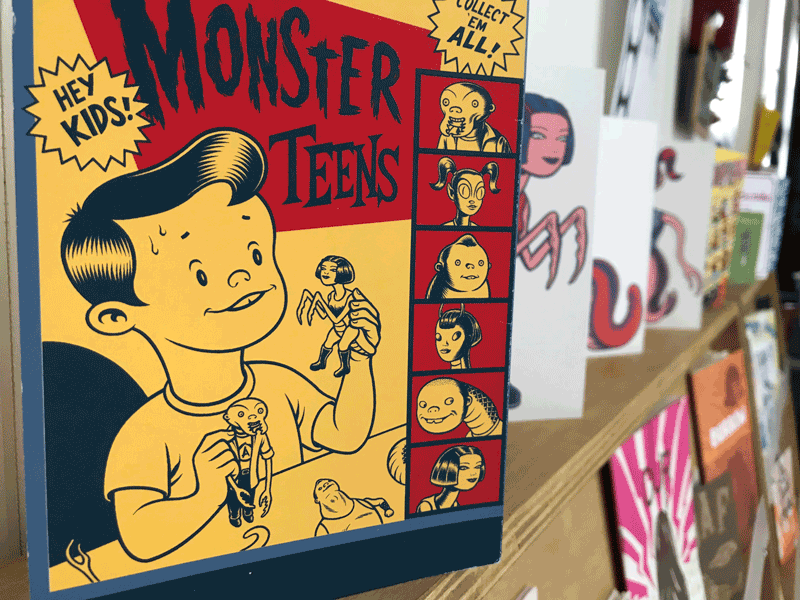
Interview by from Angela Boyle ′16.
Tags: Cartoon Studies, Dan Nott, interview, Mini-comics, Schulz Library, zine garden, zines
